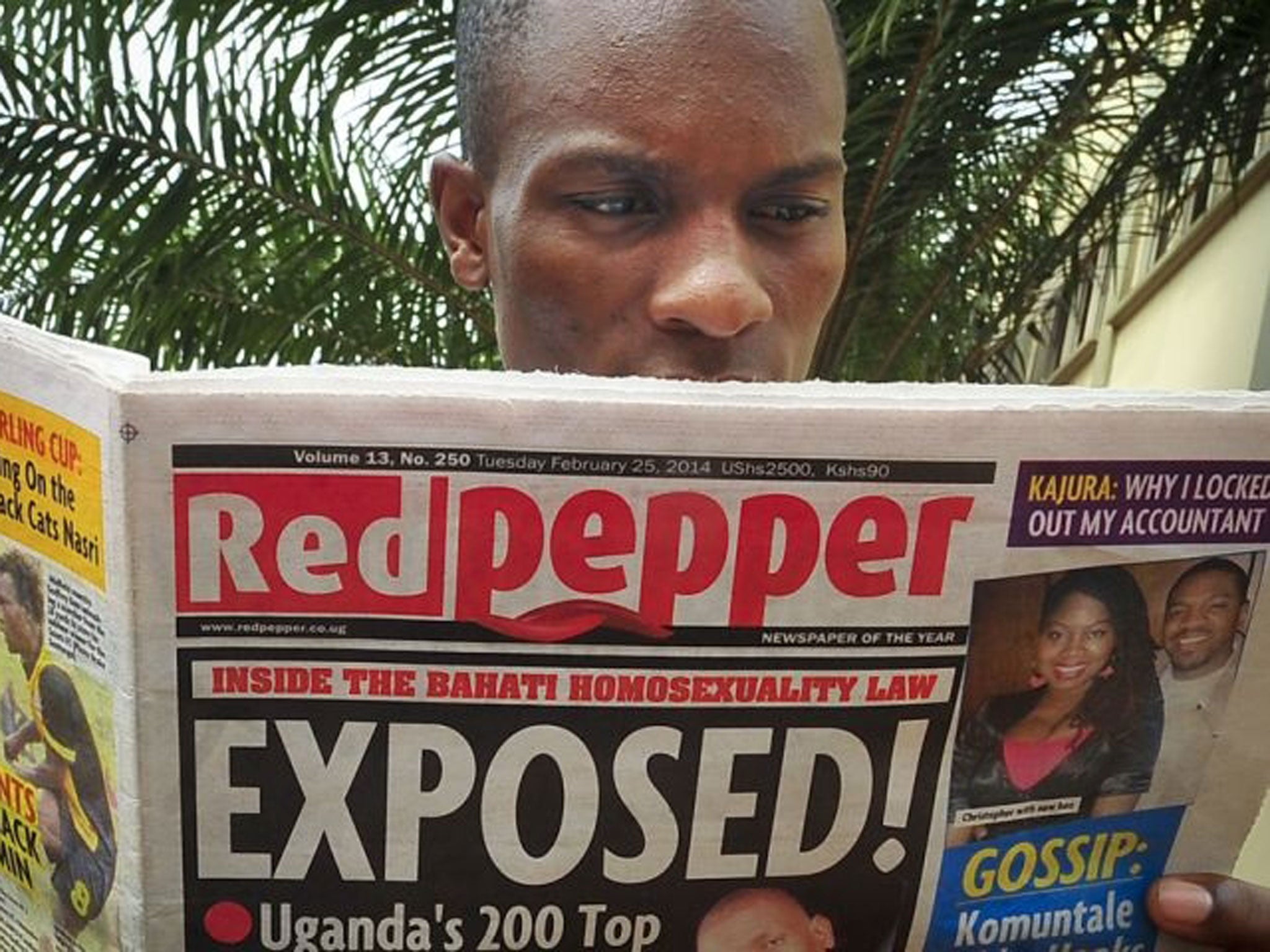Ugandan newspaper Red Pepper publishes 'top 200' homosexuals list
LGBT rights activists warn the list could endanger people's lives

A Ugandan newspaper has published what is has called the country’s “200 top” homosexuals, outing some citizens who had never publicly disclosed their sexuality.
The list comes a day after President Yoweri Museveni signed a bill enacting harsher laws on homosexuals.
The tabloid Red Pepper published the names, and some photographs, of people they claim are homosexuals, alongside the front page headline: “EXPOSED!”
Those who appear on the list include prominent Ugandan gay activists such as Pepe Julian Onziema, who condemned the anti-gay bill on Monday, and has repeatedly warned the law could spark violence against people thought to be homosexual.
The climate surrounding homosexuality in Uganda means few people are publicly out.
Red Pepper’s list echoed a similar article published in 2011 in a now-defunct tabloid that called for gay people to be executed.
Jacqueline Kasha, a well-known Ugandan lesbian activist who is among those listed in the Red Pepper story, tweeted:“The media witch hunt is back,” in reference to the 2011 list.
David Kato, a prominent Ugandan gay activist, was killed after that list came out, and activists said at the time that they believed he was targeted because of his work promoting gay rights in Uganda.
Under Uganda's new-anti-gay law, gay sex is punishable by life imprisonment.
The law — which came just over a month after Nigeria passed a similar measure against homosexuals — has been internationally condemned, although it is widely popular among Ugandans.
US Secretary of State John Kerry said the signing of the bill marked “a tragic day for Uganda and for all who care about the cause of human rights” and warned that Washington could cut aid to the government of the East African nation.
UN High Commissioner for Human Rights Navi Pillay warned that the law would institutionalise discrimination, and could encourage harassment and violence against people thought to be homosexual.
But President Museveni has defended the measure, and has rejected international criticism of the law as Western interference in Uganda's internal affairs.
He has accused “arrogant and careless Western groups” of trying to recruit Ugandan children into homosexuality, but he did not name these purported groups.
Ugandan police spokesman Patrick Onyango said on Tuesday that no homosexuals have been arrested since President Museveni signed the bill, but that at least two people had been taken into custody since lawmakers passed the bill last December.
Onziema, an LGBT rights activist, said he had counted up to six arrests and said that more than a dozen Ugandan homosexuals had fled the country since December over safety concerns.
Some Ugandan lawyers and activists have said they will challenge the law in court as unconstitutional and impossible to implement.
Join our commenting forum
Join thought-provoking conversations, follow other Independent readers and see their replies
Comments
Bookmark popover
Removed from bookmarks